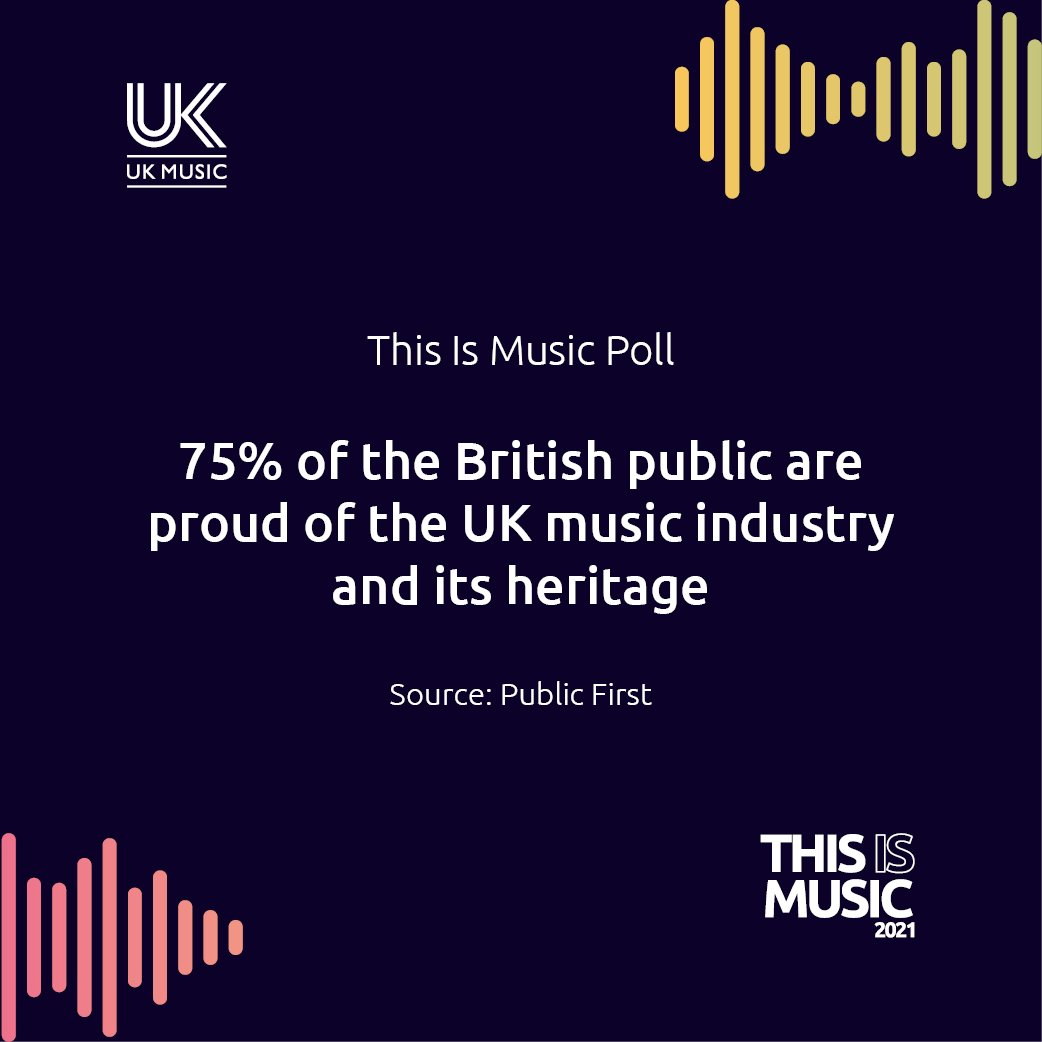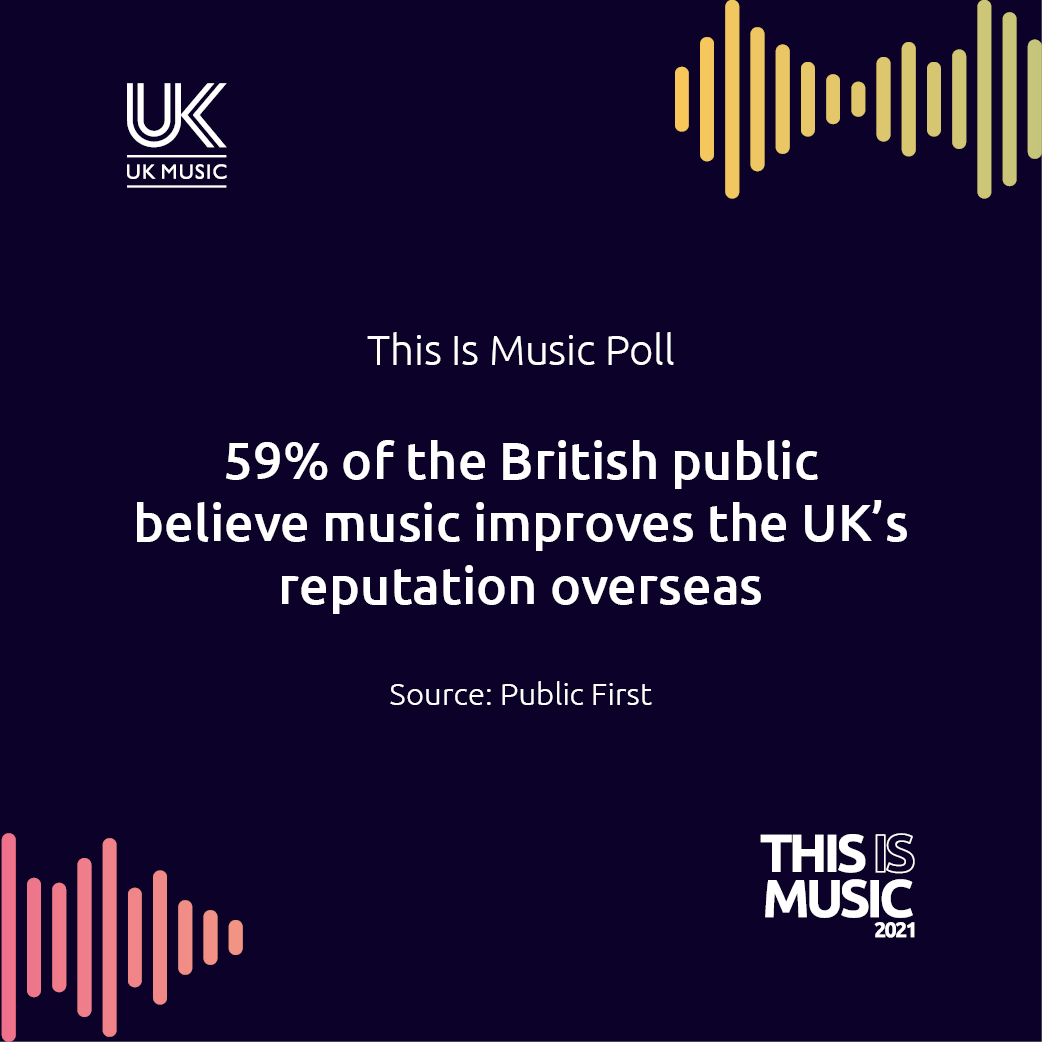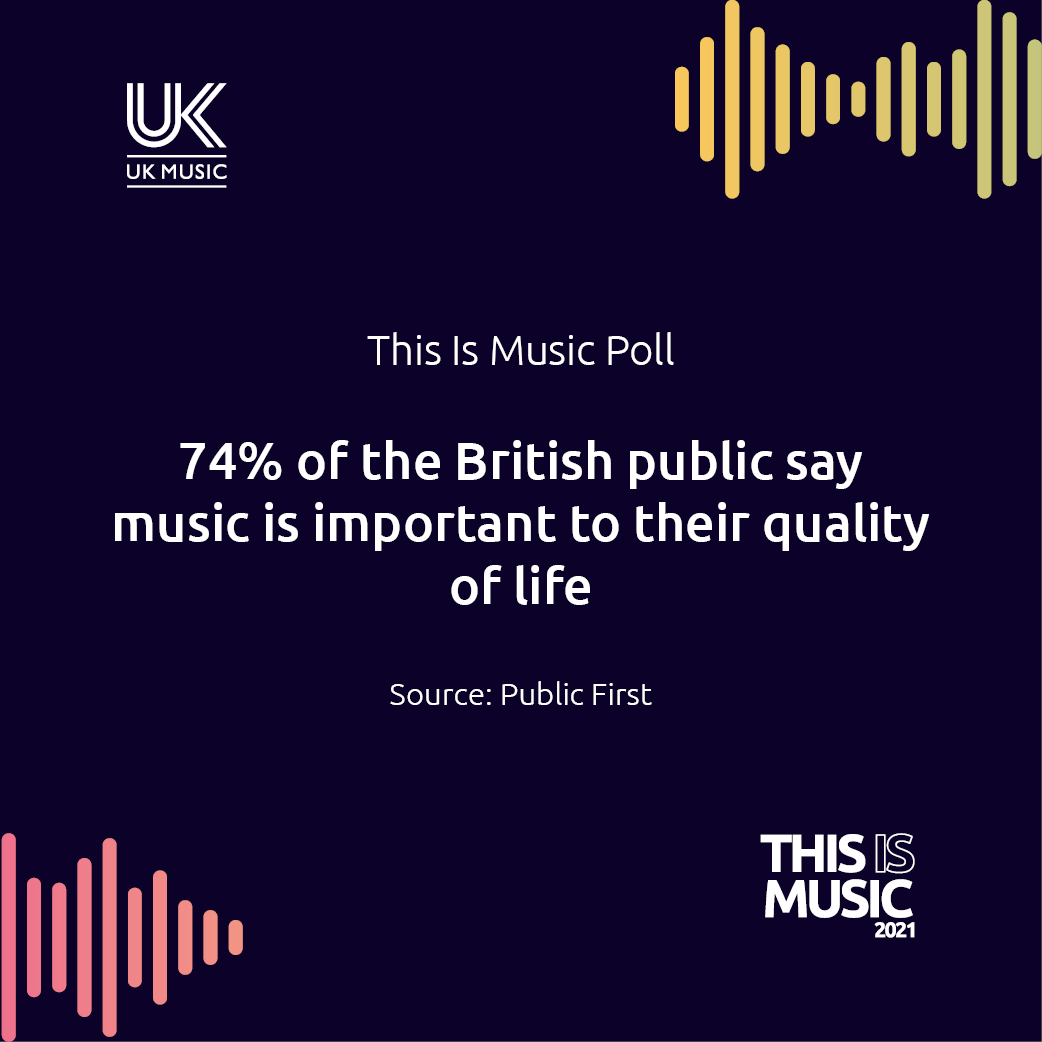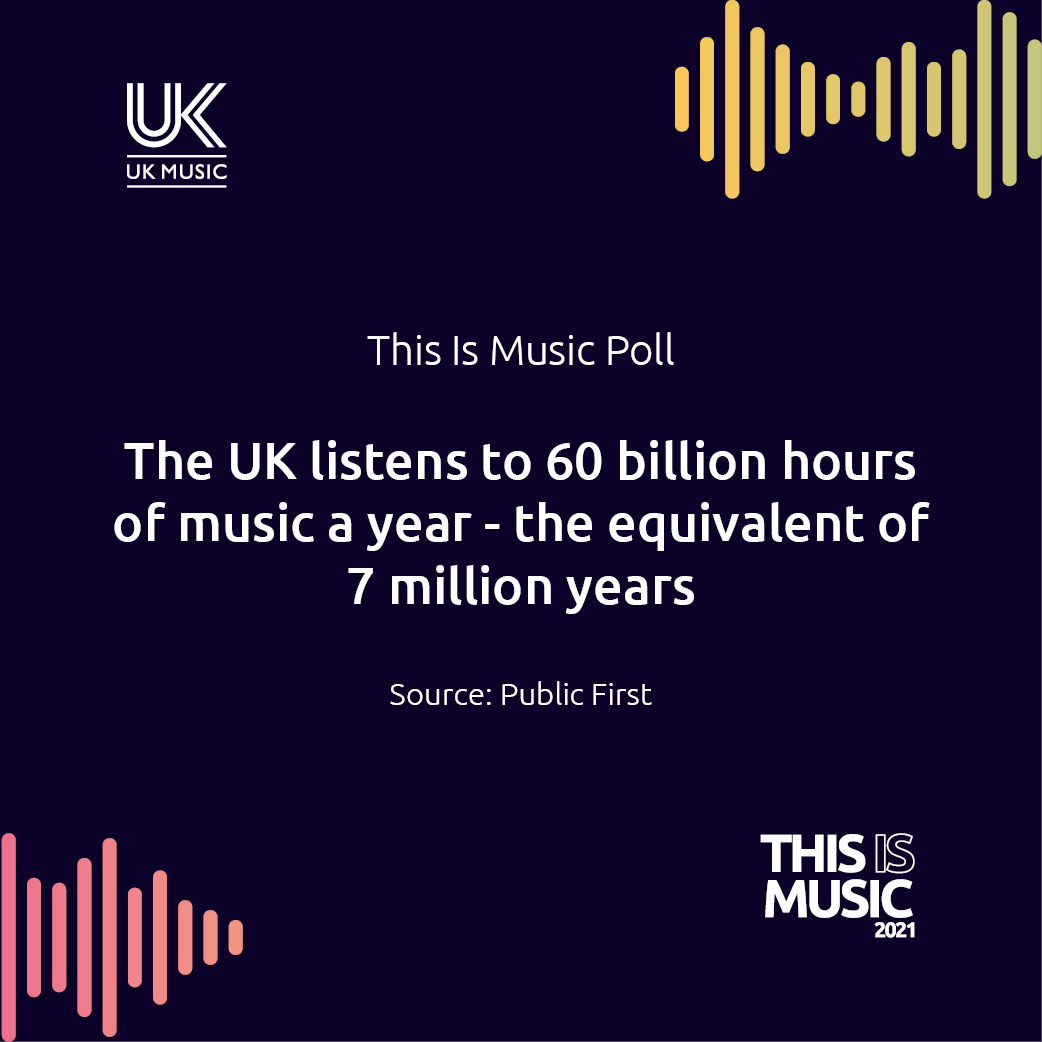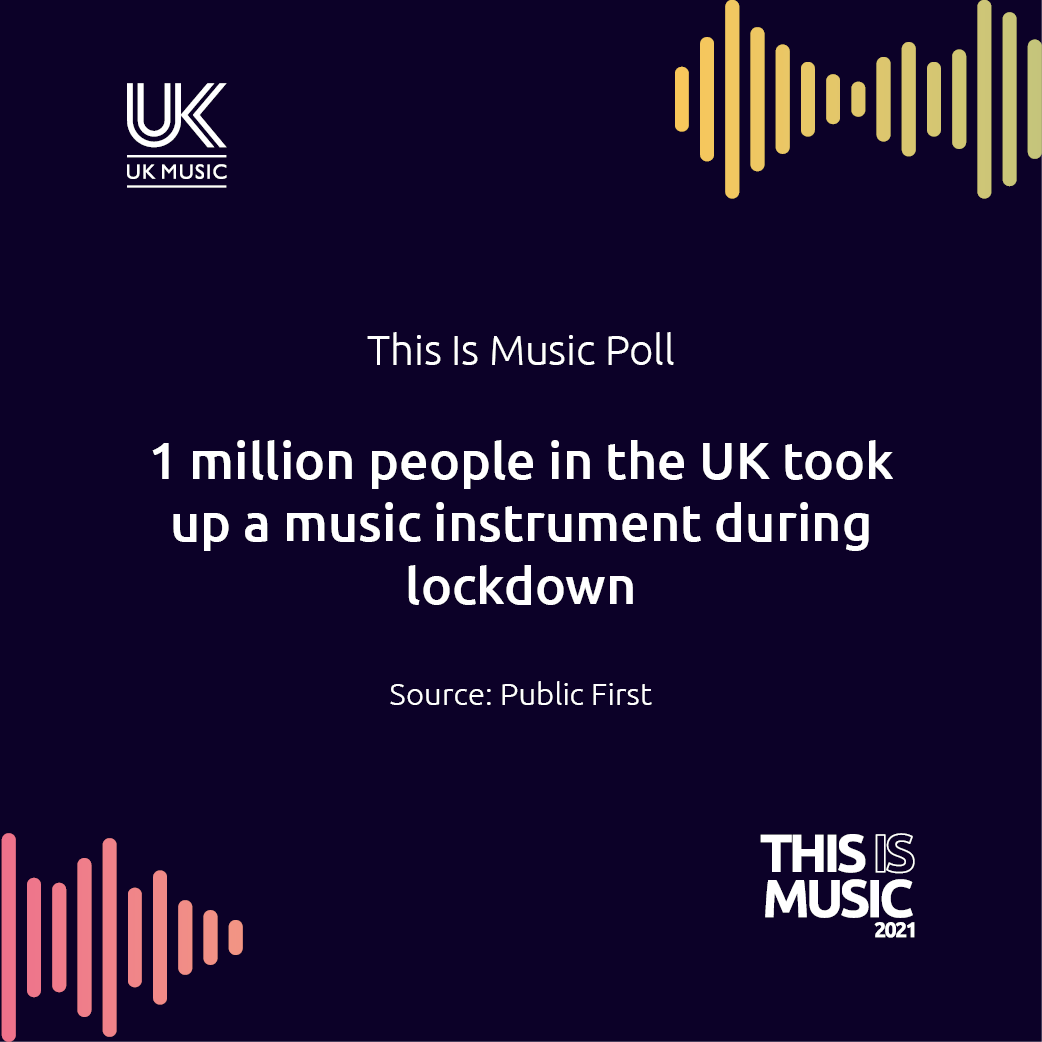UK Music calls for Government action to boost recovery as new report reveals Covid wiped out one in three music jobs
UK Music, the collective voice of the UK music industry, unveiled its This Is Music 2021 annual report. It reveals the devastating impact of Covid-19, which wiped out 69,000 jobs - one in three of the total workforce.
Launching the report, UK Music called on the Government to introduce tax incentives and other employment-boosting measures to help the sector rebuild after the pandemic. It also called for urgent action to resolve the problems facing musicians and crew touring the EU.
The measures are outlined in a new Music Industry Strategic Recovery Plan - drawn up by UK Music and included in the new report.
The key findings about the music industry contained in This Is Music 2021 include:
Employment plunged by 35% from 197,000 in 2019 to 128,000 in 2020
Music industry’s economic contribution fell 46% from £5.8bn to £3.1bn in 2020
Music exports dropped 23% from £2.9 billion in 2019 to £2.3 billion in 2020
Glastonbury was among the hundreds of festivals and live music events cancelled after the first in a series of lockdowns was imposed in March 2020.
The impact was felt right across the industry as studios and venues were forced to close, and musicians and crew were unable to work. In a sector where three-quarters are self-employed, many were not covered by Government support schemes.
The huge economic contribution that music made to the UK economy in 2019 almost halved as a result of the pandemic - falling by 46% from a record £5.8 billion (GVA) in 2019 to £3.1 billion in 2020.
The pandemic triggered a wave of job losses across the UK music industry, which saw one in three jobs lost in the sector as the employment level fell by 35% from 2019’s all-time high of 197,000 to 128,000 in 2020.
Exports suffered a 23% drop from £2.9 billion in 2019 to £2.3 billion last year, according to the flagship economic study, which UK Music has carried out since 2013 with its members.
UK Music’s report measures the health of the music business by collating data about its contribution in goods and services to the economy. That economic contribution is known as Gross Value Added (GVA).
UK Music’s Chief Executive Jamie Njoku-Goodwin said the report provided clear evidence of the need for swift Government action to help the music industry to continue rebuilding and return to growth post-pandemic.
He outlined five key areas where swift action from the Government would help the industry create thousands of new jobs and provide a rewarding career for thousands of people.
UK Music is calling on the Government to implement:
Tax incentives for the music industry to stimulate growth and jobs
Urgent action to remove the barriers to touring the EU
A permanent reduction in VAT rate on live music event tickets
More funding and support for music exports
Boosting funding for music education and for the self-employed to help secure the talent pipeline
In addition to UK Music’s research, UK Music also commissioned Public First to survey the views of the general public on the music industry.
The survey by Public First found:
75% of the public are proud of the UK music industry and its heritage
59% believe music improves the UK’s reputation overseas
74% say music is important to their quality of life
UK listens to 60 billion hours of music a year - the equivalent of 7 million years
1 million people took up a music instrument during lockdown
[A link to the full results of the Public First survey can be found under notes to editors].
UK Music Chief Executive Jamie Njoku-Goodwin said:
“The past 18 months have been exceptionally challenging for the UK music industry, with billions wiped off the value of the sector – but we are determined to look to the future and focus on recovery.
“Music matters to us all. And in a year when we’ve seen just how important music is to all our lives, it’s more important than ever that we take the necessary steps to protect, strengthen and grow the industry.
“In our Music Industry Strategic Recovery Plan we identify the policy interventions required and set out a clear action plan to get the industry back up on its feet.
“With the right support, the UK music industry can help drive the post-pandemic recovery. This Is Music sets out the positive role the music industry can play in our country’s future, and the steps that need to be taken to achieve that.
“Music is a key national asset, part of our history and our heritage. More than that, it’s part of our future. And we can’t value it highly enough.”
Culture Secretary Nadine Dorries said: “I know how difficult the last year and a half has been - with venues closed, stages dark, and artists prevented from doing what they love. The whole industry has shown great strength, patience and resilience during these hard times, pulling together to help the whole country get through the COVID-19 crisis.Our £2 billion Culture Recovery Fund has been a vital lifeline, helping music organisations across the UK to survive one of the worst peacetime crises on record. As doors reopened, our Events Research Programme has enabled music events to return safely. We have also listened carefully to UK Music’s arguments about a market failure regarding events insurance, and introduced the Government-backed £700 million Live Events Reinsurance Scheme to ensure future events can be planned with certainty. Until now, our focus has been rescue and reopening. Now the priority is to ensure a strong recovery. The UK music industry is one of our country’s great national assets, and I give my commitment that the Government will continue to back it every step of the way.”
BBC Director-General Tim Davie said: “The UK’s music industry is a unique national asset and fundamental to the success of our world-beating creative industries. Before Covid hit, the creative industries were generating £116bn in annual GVA for the UK. Music and the wider creative sector have a critical role to play in driving the post-pandemic cultural and economic recovery.”
James Sanderson, Chief Executive of the National Academy for Social Prescribing, said: “Music can play a powerful and meaningful role in supporting health and wellbeing - improving quality of life through triggering memories of joy, and creating moments of relief for people struggling with mental ill health.”
Download the full report here.


